
Angry at what they perceive to be a queer ignorance on the Obama campaign’s part, some Clinton supporters are threatening to bring up yet another contentious preacher: James Meeks.
A former Representative from Illinois, Meeks holds virulently anti-gay viewpoints and ran on a fiercely “traditional” gubernatorial ticket in his home state. Barack Obama‘s decision not to scratch him from the delegate process, coupled with his campaign’s inability to shore up gay delegate support in Louisiana has some Clinton-supporters crying foul. A source sent me this sour message from a gay list-serve:
I am truly saddened by both the campaign’s position on the issue, as well as the manner and methods it has chosen to defend the indefensible [Meeks].
Despite the campaign’s intransigence, here is a save-face offer: If Meeks is not seated at the convention, we will drop mention of his past in the name of party unity.
I certainly agree that Meeks should have no place in Denver, but, at this late in the game, it’s becoming more and more likely that Senator Obama will be the Democratic party’s presidential candidate and Meeks has already been selected. All gay Democrats can do now is get involved in the process to offset a potentially dangerous character. This means, of course, that people in states that have not yet selected their delegates should throw their name into the ring – and make a show of it, something that didn’t happen in Louisiana. You can get involved over at Pride In The Party.
We can’t control how state parties respond to the DNC’s Shay Amendment, but we can sure as hell struggle for our place at the table. But, even if states fall short, gay Democrats have no choice but to come together.
Yes, it would be unfortunate if we didn’t meet the “gay goals,” but it would be far more unfortunate if this contentious delegate selection process caused Clinton-supporters to back McCain, as some have pledged. This would be a grave mistake, especially considering McCain’s vow to install conservative judges like Sam Alito, as well as his connections to anti-gay Attorney Generals.
Rick Boylan – the National Stonewall Democratic leader who heads Pride in the Party – agrees with my position and referred to potential McCain-backers as “short-sighted.” He emphasized to me that both Democratic candidates, regardless of surrogates’ questionable pasts, share “the same values” as we gays, who come in every shape, size and color.
If the Obama and Clinton camps don’t come together for the convention, then the DNC’s efforts to build an inclusive party, however limp, will have been in vain. And will almost certainly guarantee a Republican victory.
Don't forget to share:
Help make sure LGBTQ+ stories are being told...
We can't rely on mainstream media to tell our stories. That's why we don't lock Queerty articles behind a paywall. Will you support our mission with a contribution today?
Cancel anytime · Proudly LGBTQ+ owned and operated
 We’re in the home stretch of primary season, but that doesn’t mean all’s well in the Democratic party. Aside from Hillary Clinton‘s commendable tenacity, and the din of her vocal, though dwindling supporters, there’s a new tussle a brewing: the delegate selection tussle.
Many state parties have shown resistance to the Democratic National Committee’s Shay Amendment, a measure that set so-called “gay goals.” These numeric marks were set to help each state or territory include gay people in their overall delegate camp. Unfortunately, things haven’t worked out quite as planned. And, if you haven’t read part one, you’d better catch up.
Like everything in politics, the delegate selection process involves loads of “horse-trading,” to borrow a phrase from Chip Arndt. Arndt’s name may be most familiar from his stint on The Amazing Race, but he’s also made a name for himself as a strategist and Democratic activist.
When asked to explain the role national campaigns and the party play in the selection process, Arndt replied, “Politics is not always logical and we all know that politics is not always fair. Back room deals are made all of the time, sacrificing one piece of “good” legislation for another.” He went on to laud the DNC for adopting the Shay Amendment, although does offer a heavy dose of reality: “There are no guarantees that [gay goals will be met] unless state Democratic Party leaders work hard with LGBT states leaders to ensure that state LGBT goals for representation, which vary from state to state, are met.”
Ardnt’s words bring us back to Louisiana and comments that the state party had been “resistant” to gay delegates – and those distasteful allegations that Obama-supporting locals had nixed queer candidates from the selection roster.
The claim sprang from Clinton-backing Jon Winkleman, whose email to a gay listserve got leaked to me. The Obama campaign dismissed Winkleman’s words, but Louisiana-based leader Stephen Handwerk seemed to corroborate.
We’re in the home stretch of primary season, but that doesn’t mean all’s well in the Democratic party. Aside from Hillary Clinton‘s commendable tenacity, and the din of her vocal, though dwindling supporters, there’s a new tussle a brewing: the delegate selection tussle.
Many state parties have shown resistance to the Democratic National Committee’s Shay Amendment, a measure that set so-called “gay goals.” These numeric marks were set to help each state or territory include gay people in their overall delegate camp. Unfortunately, things haven’t worked out quite as planned. And, if you haven’t read part one, you’d better catch up.
Like everything in politics, the delegate selection process involves loads of “horse-trading,” to borrow a phrase from Chip Arndt. Arndt’s name may be most familiar from his stint on The Amazing Race, but he’s also made a name for himself as a strategist and Democratic activist.
When asked to explain the role national campaigns and the party play in the selection process, Arndt replied, “Politics is not always logical and we all know that politics is not always fair. Back room deals are made all of the time, sacrificing one piece of “good” legislation for another.” He went on to laud the DNC for adopting the Shay Amendment, although does offer a heavy dose of reality: “There are no guarantees that [gay goals will be met] unless state Democratic Party leaders work hard with LGBT states leaders to ensure that state LGBT goals for representation, which vary from state to state, are met.”
Ardnt’s words bring us back to Louisiana and comments that the state party had been “resistant” to gay delegates – and those distasteful allegations that Obama-supporting locals had nixed queer candidates from the selection roster.
The claim sprang from Clinton-backing Jon Winkleman, whose email to a gay listserve got leaked to me. The Obama campaign dismissed Winkleman’s words, but Louisiana-based leader Stephen Handwerk seemed to corroborate. We’re in the home stretch of primary season, but that doesn’t mean all’s well in the Democratic party. Aside from Hillary Clinton‘s commendable tenacity, and the din of her vocal, though dwindling supporters, there’s a new tussle a brewing: the delegate selection tussle.
Many state parties have shown resistance to the Democratic National Committee’s Shay Amendment, a measure that set so-called “gay goals.” These numeric marks were set to help each state or territory include gay people in their overall delegate camp. Unfortunately, things haven’t worked out quite as planned. And, if you haven’t read part one, you’d better catch up.
Like everything in politics, the delegate selection process involves loads of “horse-trading,” to borrow a phrase from Chip Arndt. Arndt’s name may be most familiar from his stint on The Amazing Race, but he’s also made a name for himself as a strategist and Democratic activist.
When asked to explain the role national campaigns and the party play in the selection process, Arndt replied, “Politics is not always logical and we all know that politics is not always fair. Back room deals are made all of the time, sacrificing one piece of “good” legislation for another.” He went on to laud the DNC for adopting the Shay Amendment, although does offer a heavy dose of reality: “There are no guarantees that [gay goals will be met] unless state Democratic Party leaders work hard with LGBT states leaders to ensure that state LGBT goals for representation, which vary from state to state, are met.”
Ardnt’s words bring us back to Louisiana and comments that the state party had been “resistant” to gay delegates – and those distasteful allegations that Obama-supporting locals had nixed queer candidates from the selection roster.
The claim sprang from Clinton-backing Jon Winkleman, whose email to a gay listserve got leaked to me. The Obama campaign dismissed Winkleman’s words, but Louisiana-based leader Stephen Handwerk seemed to corroborate.
We’re in the home stretch of primary season, but that doesn’t mean all’s well in the Democratic party. Aside from Hillary Clinton‘s commendable tenacity, and the din of her vocal, though dwindling supporters, there’s a new tussle a brewing: the delegate selection tussle.
Many state parties have shown resistance to the Democratic National Committee’s Shay Amendment, a measure that set so-called “gay goals.” These numeric marks were set to help each state or territory include gay people in their overall delegate camp. Unfortunately, things haven’t worked out quite as planned. And, if you haven’t read part one, you’d better catch up.
Like everything in politics, the delegate selection process involves loads of “horse-trading,” to borrow a phrase from Chip Arndt. Arndt’s name may be most familiar from his stint on The Amazing Race, but he’s also made a name for himself as a strategist and Democratic activist.
When asked to explain the role national campaigns and the party play in the selection process, Arndt replied, “Politics is not always logical and we all know that politics is not always fair. Back room deals are made all of the time, sacrificing one piece of “good” legislation for another.” He went on to laud the DNC for adopting the Shay Amendment, although does offer a heavy dose of reality: “There are no guarantees that [gay goals will be met] unless state Democratic Party leaders work hard with LGBT states leaders to ensure that state LGBT goals for representation, which vary from state to state, are met.”
Ardnt’s words bring us back to Louisiana and comments that the state party had been “resistant” to gay delegates – and those distasteful allegations that Obama-supporting locals had nixed queer candidates from the selection roster.
The claim sprang from Clinton-backing Jon Winkleman, whose email to a gay listserve got leaked to me. The Obama campaign dismissed Winkleman’s words, but Louisiana-based leader Stephen Handwerk seemed to corroborate. [DNC Chairman Howard Dean’s headache has just begun…]
Though Handwerk supports Clinton’s candidacy, he also works as the Louisiana state party’s gay liaison, which means he’s the point person for campaigners from both camps and privy to all-sorts of hot gossip. And that gossip included Winkelman’s claims that Obama locals were working against the gay cause:
[DNC Chairman Howard Dean’s headache has just begun…]
Though Handwerk supports Clinton’s candidacy, he also works as the Louisiana state party’s gay liaison, which means he’s the point person for campaigners from both camps and privy to all-sorts of hot gossip. And that gossip included Winkelman’s claims that Obama locals were working against the gay cause: 


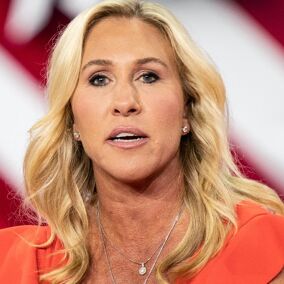
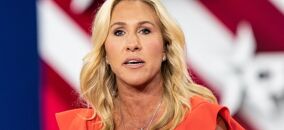
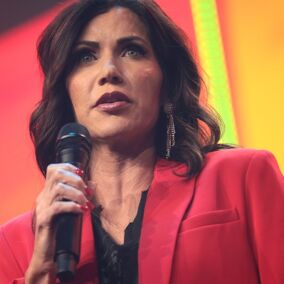

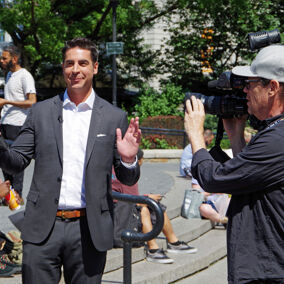

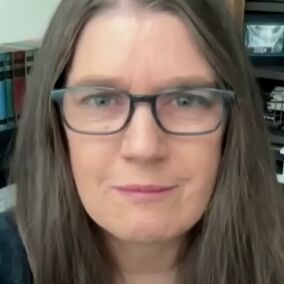



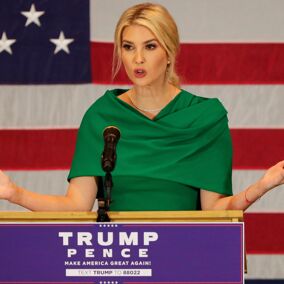
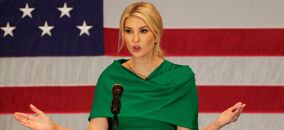
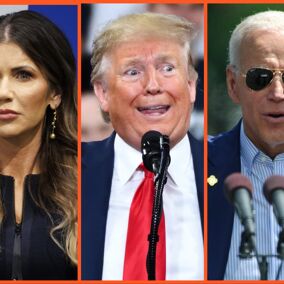
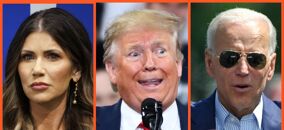
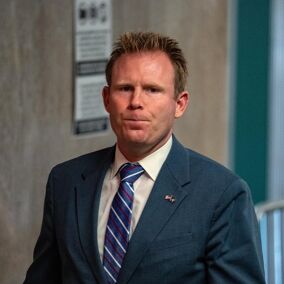
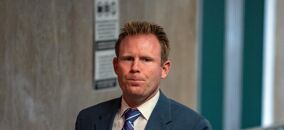
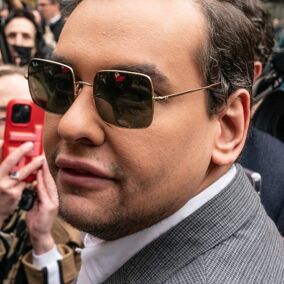
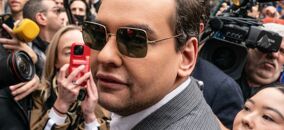












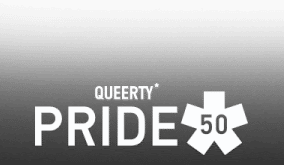











Lee
Exactly what went on in Louisiana and what people’s motives were may be in dispute, but the result underscores the voluntary nature of the LGBT “goals”. Garry Shay did try to get LGBTs added as a category in the party’s affirmative action plan, but such an arrangement was opposed by various individuals. Perhaps Ms. Daughtry and Ms. Brazile can *ahem* shed light on how that came to pass.
There are states that had the opposite experience from Louisiana. Arizona’s LGBT goal was 5 out of 67 delegates and 9 alternates; the number of LGBT Arizonans will actually be 11.
Some states no doubt will fail to meet their goals; some will exceed theirs. The nationwide LGBT grand total by the time the convening gavel comes down may well be above the national goal.
This is the first convention at which the LGBT goal regime has been in place nationwide. If we view the difference between is and what can be as an opportunity, we have lots of opportunities ahead of us — Louisiana, for example. It should be no surprise that there would be a few states where fulfillment of the goal fell short. It will be a nasty surprise if we fall short in November. Let’s keep our eyes on THAT goal.
david
I believe the point of the story is that when each of the campaigns were selecting and pushing their preferred slate of delegates in various states, Clinton has consistently met or exceeded the goals while Obama has made little or no top down effort to ensure that the goals are met in every state. I read that Massachusetts exceeded a goal of 8 by electing 13 LGBT at large delegates when their goal was 8. However 10 ran as Clinton delegates while 3 ran for Obama. I think that kind of spread says far more about the candidates than it does the DNC or the State Party.
Charley
Donna Brazile and Leah Daughtrey don’t think we have suffered enough at the voting booth. This was echoed by Clinton in one of her speeches.
It’s not amazing that these two can call the game.
But then again, African Americans give huge sums to Obama, have enormous numbers clout with the DNC and LGBT’s can’t compete. They don’t want us queers in the political arena. Therefore, we don’t get delegates to the convention. Garry Shay has certainly done his part to help advance our rights. Sorry the big mouth bitches got in his way.
Charley
This quote hit the nail on it’s head – “The fact of the matter is that much of this nation remains antagonistic or ambivalent toward gay involvement in the political process. And the DNC knows that.”
Let’s face the facts. We are not the most loved group in America, mostly due to the religeous fervor and condemnation from white and black pastors..So who does DNC get to chair the convention ? A Pentacostal black pastor against same sex marriage. Seems hopeless and out of control.
Mr C
Well Charley it could have been a White Pastor who feels the same way.
Charley
Mr. C
Either way, black or white pastor, politics is not their field and the church that represent should lose their non profit charitable status .
abracadaver
I can’t believe that no one in this learned group has yet discovered and posted that the statements made in Part I of this article by Queerty about Donna Brazile are completely inaccurate.
Ms. Brazile has consistently fought for LGBT inclusion. She did not reject the Shay amendment (inclusion of LGBT people as delegates); she merely said that including them under Rule 6A of the delegate rules wasn’t appropriate, as it applies to racial/ethnic minorities who were once denied the right to vote. That is what the Shay amendment attempted to do. She and others then proposed and introduced Rule 7C, to codify a position for both LGBT people and those with disabilities. This is in addition to Rule 5.
Queerty has a reponsibility to check the facts, and they often fail abysmally. Anyone interested in the ACTUAL facts can call Brian Bond at the DNC, 203-863-8000.
Garry S. Shay
Abracadaver is correct. Donna and I worked together.
One night, in New Orleans, after that day’s deliberations at the DNC meeting, Donna and I spent about three hours driving around together late at night touring the devestation. We had dinner together after that in the French Quarter. We talked for a considerable amount of time. We got to know one another and learn to respect each other’s goals and viewpoints.
I eventually came to learn that her main concern was about the appropriateness of including LGBT in a category under Rule 6A (Affirmative Action) that she contended was historically reserved as a remedy for constituencies which had been subject to State imposed discrimination on their right to vote, when the same could not be said of the LGBT Community. There was some concern that placing LGBT in that rule would undermine that remedy in other jurisdictions.
While I did not agree with that analysis, I was sensitive to her concerns.
Once I understood that concern, I was able to work out a compromise via the new Rule 7 (Inclusion), which I sponsored. That Rule provides that a State may satisfy its obligations for Inclusion by setting a numeric goal for LGBT and the Disabled, or it must adopt an Inclusion Program.
Actually, Rule 7 is stronger in some respects than Rule 6, because if a State or Territory opts not to set a goal for its National Delegation as is required for the the constituencies that have “historically been discriminated against” in their right to vote, they must commit to inclusion of LGBT and the Disabled in the State Party apparatus such as standing committees, along with a long list of other requirements.
Eventually, 50 of 56 States and Territories opted to set goals. It was six of the smaller states and Territories that opted for inclusion, and one of the reasons was that their delegations were small and it would be much harder to balance the delegation. In those smaller jurisdictions, the inclusion program may actually be the more appropriate choice, and, in the long run, will actually prove more fruitful than setting a goal for the National Delegates would have been.
I am quite proud of having done this. Realize that in all 56 jurisdictions, the Parties must consider inclusion in some manner in either their Delegations and/or State Parties of LGBT and the Disabled. There are many States and Territories that never gave that second thought before.
It will take time to fully implement this, but it is a major step forward and should be celebrated.